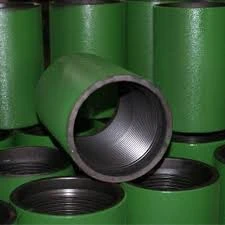- Afrikaans
- Albanian
- Amharic
- Arabic
- Armenian
- Azerbaijani
- Basque
- Belarusian
- Bengali
- Bosnian
- Bulgarian
- Catalan
- Cebuano
- Corsican
- Croatian
- Czech
- Danish
- Dutch
- English
- Esperanto
- Estonian
- Finnish
- French
- Frisian
- Galician
- Georgian
- German
- Greek
- Gujarati
- Haitian Creole
- hausa
- hawaiian
- Hebrew
- Hindi
- Miao
- Hungarian
- Icelandic
- igbo
- Indonesian
- irish
- Italian
- Japanese
- Javanese
- Kannada
- kazakh
- Khmer
- Rwandese
- Korean
- Kurdish
- Kyrgyz
- Lao
- Latin
- Latvian
- Lithuanian
- Luxembourgish
- Macedonian
- Malgashi
- Malay
- Malayalam
- Maltese
- Maori
- Marathi
- Mongolian
- Myanmar
- Nepali
- Norwegian
- Norwegian
- Occitan
- Pashto
- Persian
- Polish
- Portuguese
- Punjabi
- Romanian
- Russian
- Samoan
- Scottish Gaelic
- Serbian
- Sesotho
- Shona
- Sindhi
- Sinhala
- Slovak
- Slovenian
- Somali
- Spanish
- Sundanese
- Swahili
- Swedish
- Tagalog
- Tajik
- Tamil
- Tatar
- Telugu
- Thai
- Turkish
- Turkmen
- Ukrainian
- Urdu
- Uighur
- Uzbek
- Vietnamese
- Welsh
- Bantu
- Yiddish
- Yoruba
- Zulu
Stainless Steel Pipe Coupling Options for Various Applications and Connections
Understanding SS Pipe Couplings A Comprehensive Guide
In the realm of piping systems, particularly within industrial, commercial, and residential applications, the choice of materials and connection methods can significantly impact the overall efficiency, safety, and durability of a system. Among the various options available, stainless steel (SS) pipe couplings stand out as a popular choice due to their strength, corrosion resistance, and versatility. This article delves into the characteristics, types, applications, and advantages of SS pipe couplings to provide a clear understanding of their importance in piping systems.
What are SS Pipe Couplings?
SS pipe couplings are fittings designed to connect two pieces of piping. They facilitate the transfer of fluids, gases, and other materials within a piping network. These couplings are made from stainless steel, an alloy known for its exceptional resistance to corrosion and high temperatures, which is critical in many industrial applications. The SS in SS pipe coupling indicates the stainless steel composition, typically consisting of chromium, nickel, and sometimes molybdenum, which enhance the material's mechanical properties.
Types of SS Pipe Couplings
There are several types of stainless steel couplings available on the market, including
1. Slip Couplings These are used to connect two pipes of the same diameter. They can slide over the pipe ends and can be secured with welding or other fastening methods. Slip couplings are ideal for applications requiring alignment adjustments.
2. Threaded Couplings These couplings feature internal threads that allow connection to threaded pipe ends. They are convenient for systems where disassembly is necessary for maintenance.
3. Welded Couplings Designed for permanent connections, welded couplings are attached by welding the coupling to the pipe ends. This creates a strong and leak-proof connection, making them suitable for high-pressure applications.
4. Compression Couplings These allow for easy installation without the need for welding. They are typically used in pipe repair situations, as they can securely join two pipes while compensating for slight misalignments.
Applications of SS Pipe Couplings
ss pipe coupling

SS pipe couplings find extensive use across various industries
- Oil and Gas Given their corrosion resistance, they are widely used in pipelines transporting crude oil, natural gas, and refined products. - Chemical Processing The ability to resist harsh chemicals makes SS couplings ideal for chemical plants. - Water Treatment Stainless steel's hygienic properties make it suitable for water treatment facilities where contamination must be minimized.
- Food and Beverage In the food industry, stainless steel is often the preferred choice due to its ease of cleaning and resistance to bacteria.
Advantages of SS Pipe Couplings
1. Corrosion Resistance One of the most significant advantages of stainless steel is its ability to withstand corrosion, making SS couplings ideal for use in environments with exposure to moisture and harsh chemicals.
2. Durability Stainless steel couplings have excellent tensile strength and can endure high pressure, reducing the risk of failure in critical applications.
3. Temperature Resistance SS couplings perform well under high temperatures, which is essential in many industrial processes.
4. Versatility The availability of different types of SS couplings makes them suitable for a wide range of piping systems and applications.
5. Low Maintenance Stainless steel is easy to maintain and does not require frequent replacements, which can significantly lower operational costs.
Conclusion
In conclusion, SS pipe couplings are a crucial component in many piping systems across diverse industries. Their exceptional characteristics, including corrosion resistance and durability, make them a preferred choice for various applications. By understanding the different types of SS couplings and their specific uses, engineers and technicians can make informed decisions that enhance the efficiency and safety of their piping systems. As technology continues to evolve, stainless steel fittings will likely play an increasingly prominent role in the future of fluid and gas transportation.
-
Tubing Pup Joints: Essential Components for Oil and Gas OperationsNewsJul.10,2025
-
Pup Joints: Essential Components for Reliable Drilling OperationsNewsJul.10,2025
-
Pipe Couplings: Connecting Your World EfficientlyNewsJul.10,2025
-
Mastering Oilfield Operations with Quality Tubing and CasingNewsJul.10,2025
-
High-Quality Casing Couplings for Every NeedNewsJul.10,2025
-
Boost Your Drilling Efficiency with Premium Crossover Tools & Seating NipplesNewsJul.10,2025







